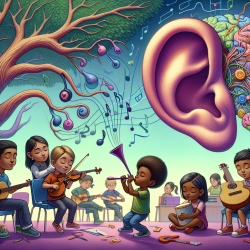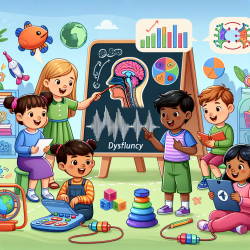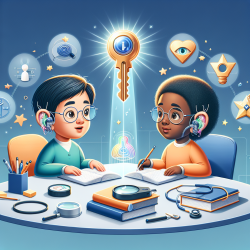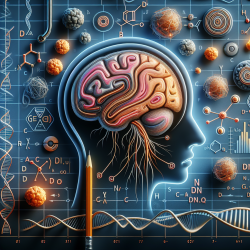As a speech-language pathologist, you are always looking for ways to improve outcomes for the children you work with. One promising avenue is the use of musical training to enhance auditory processing skills. The recent review article "Enhanced auditory evoked potentials in musicians: A review of recent findings" by Sanju and Kumar provides compelling evidence that musical training can lead to significant improvements in auditory processing, which can be highly beneficial for children with various speech and language disorders.
Understanding Auditory Evoked Potentials
Auditory evoked potentials (AEPs) are electrical responses generated by the auditory system in response to sound stimuli. These responses can be measured at different levels of the auditory pathway, from the brainstem to the cortex. The review article summarizes research showing that musicians, due to their extensive training, exhibit enhanced AEPs compared to non-musicians. This enhancement is evident in various aspects such as:
- Brainstem Auditory Evoked Potentials (BAEPs): Musicians show better encoding of pitch and harmonics, and they are less affected by background noise.
- Cortical Auditory Evoked Potentials (CAEPs): Musicians exhibit increased neural synchrony and stronger neural connections, leading to shorter latencies and greater amplitudes of CAEPs.
- P300 Responses: These are event-related potentials that are highly dependent on attention. Musicians have shorter latencies and larger amplitudes of P300 responses, indicating superior attentive auditory discrimination skills.
- Mismatch Negativity (MMN): This potential is used to assess pre-attentive auditory discrimination skills. Musicians show higher amplitudes and better pre-attentive processing skills.
Neuroplasticity and Musical Training
One of the key takeaways from the review is the concept of neuroplasticity, which refers to the brain's ability to reorganize itself by forming new neural connections. Musical training is a powerful tool for inducing neuroplastic changes. The review highlights that musicians have enhanced auditory perception and cognitive skills due to years of practice and training. These changes are not just limited to auditory processing but extend to other cognitive domains as well.
Clinical Implications for Speech-Language Pathologists
The findings from the review suggest that incorporating musical training into therapy programs can be highly beneficial for children with various clinical disorders such as dyslexia, central auditory processing disorder, and developmental language disorders. Musical training can enhance both pre-attentive and attentive auditory discrimination skills, leading to improved speech perception and language development.
Practical Steps for Implementation
Here are some practical steps you can take to incorporate musical training into your therapy sessions:
- Start Early: Introduce musical activities to children as early as possible. Research shows that the effects of musical training are more pronounced when started early in life.
- Use a Variety of Instruments: Encourage children to explore different musical instruments. This not only makes the sessions more engaging but also helps in stimulating different areas of the brain.
- Incorporate Singing: Singing can be a fun and effective way to improve auditory discrimination skills. It also helps in enhancing memory and sequencing abilities.
- Monitor Progress: Use electrophysiological measures such as AEPs to monitor the progress of your therapy. This can provide objective evidence of the benefits of musical training.
Encouraging Further Research
While the current evidence is promising, more research is needed to fully understand the impact of musical training on auditory processing. Longitudinal studies that follow children over time can provide valuable insights into the long-term benefits of musical training. Additionally, research on the effectiveness of different types of musical training can help in developing more targeted therapy programs.
To read the original research paper, please follow this link: Enhanced auditory evoked potentials in musicians: A review of recent findings.










